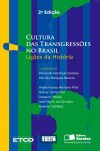The State of S. Paulo - 04/09/2011
By Renato Janine Ribeiro
Is capitalism ethical? This is a very difficult question to answer. Basically, there are two main lines today. One emphasizes the dynamics of a system, or a style, that liberates the production of traditional moorings and thus reveals an unparalleled ability to create and perhaps even distribute wealth. But the price of this liberation is nothing or unethical: the capitalist is driven by an “animal instinct”, he promotes “creative destruction”. At best, it is ethically neutral, what we call "amoral". It is often even predatory, what we call “immoral”. For him alone, he would not respect labor rights - so much so that, in recent decades, several of them have been reduced - nor would he have reverence for nature and the environment.
However, this does not necessarily represent a condemnation of capitalism. It just shows that he is excellent at what he proposes: producing. However, it needs external controls. These can be exercised by the State, by society, by public opinion. From this point of view, what can introduce ethics into the economy are people, while not entrepreneurs. That is, the entrepreneur himself, by ethical values that are not his as an entrepreneur, but as a person, as a moral subject, can guide his productive activity in a better direction. If not, it will be society. When more and more people buy taking into account not only the price, but what companies do good and bad, this is what happens. An important example in Brazil were the campaigns - driven by people, including Abrinq entrepreneurs - against child labor. Zara, accused for days of commercializing products in which slave labor is used, suffers in its image for this reason.
This is a first way of looking at capitalism, say, "wild". But there is another perception, or conception, of capitalism. It comes when organizations like Etco strive to defend a clean environment of corruption for business to flourish. Here the problem is, as seen in the series on the culture of transgressions that came out by Saraiva publisher (whose third volume I participated in), how to avoid the primacy of transgression, which makes good rules - good according to the law and ethics - be violated in the name of an easy advantage that, however, demoralizes society, amoralizes the economy and immoralizes politics. This line of thought would be closer to Max Weber's Calvinists, who felt "Protestant ethics" expressing themselves in the "spirit of capitalism". Entrepreneurial people, who dart, do everything for society to prosper: the Weberian businessman of the 16th or 17th century has nothing to do with the cartoon banker, smoking a cigar, indolent, smart, in league with the powerful, corrupters. This entrepreneur from the beginnings of modernity may not be sympathetic - in the Americas, he would be a slave master, in Holland, he would not recognize the rights of his employees -, but he worked, a lot. In a way, when it comes to capitalism that requires intense ethics, that's what you think about.
But nowadays, an upgrade appears. Increasingly, in place of Protestant and moralistic ethics, an ethical concern appears that was born from the idea of the environment and now develops for sustainability. The Calvinist entrepreneur who makes the company his reason for life no longer has the ideal model. On the contrary, more and more life is the raison d'être of everything we do, including (but not only, not even primarily) the company. It all starts with discontent with pollution. The economy that has developed since the Industrial Revolution has a very high cost for life - human, animal, vegetable. London spends a hundred years covered by fog, a fog that is due to pollution from factories. People don't see each other. The city is invisible and the citizens are blind to their surroundings. However, after the Second World War, a concern for nature grows around the world. Green movements fight against the poor quality of air, water, in order to preserve forests. At this point, “green” means the natural or assimilated environment. However, over the years, green causes attach a cast of other values. It is not just the defense of the world that is not contaminated by man. It is the defense of man, against what wears him down or devalues him.
A reorientation of science is also proposed. Take the philosopher who is the first major reference for all concern for the environment, Rousseau. He is a nature lover. He begins his Daydreams of the Lonely Walker, narrating a walk around Paris, where he looks at the plants, identifies them, is ecstatic. But it is also someone who makes his literary debut with a writing, awarded by the Dijon Academy, claiming that "the arts and sciences" - that is, what we call technology and science - have done more harm than good. They denatured the world. They degenerated the man. Rousseau sees nothing modern, be it economics, politics or science, the ability to reverse the process by which "man was born good and society corrupts him".
But what we have noticed in science in recent decades is a strong commitment to reducing and even suppressing the damage caused by development. Let us remember that not long ago science and technology were, to a large extent, influenced by military orders. That has changed. Keep in mind that much research is conducted in the name of destructive causes, even today. Many suspect that GM crops, or are certain that individual transport vehicles, cause more harm than good. Cars are good in the short term for a few, but they suck for the future of humanity as a whole. Even so, however, in cases such as the tobacco industry, scientists cut their umbilical link with it, as seen in the film The Informant. And they are renowned scientists who form the core of the International Commission on Research on Climate Change, which is perhaps the most prestigious body in the struggle to change the mindset that governs the production of negative costs for society and nature.
With a greener science and technology, a green that came out of plants and colors everything that is life and even culture, that is, it starts to propose a better quality of life for humans and their partners on the planet, with the defense of biodiversity and what we can call cultural-diversity, why not a fresh cut economy? Is it possible for a company's project to have sustainability at its core, that is, the proposal that no human intervention worsen what has been received? This is a high requirement. For me to eat, I have to kill animals or even vegetables. (The funniest moment in the movie Notting Hill, for me, was when a girl called herself a Lapsarian vegetarian. Lapse means falling. What she said was that she only ate fruits and vegetables that had already fallen from the plant that generated them. She wouldn't eat one. apple plucked from the apple tree, because it would be killing a living being. It is difficult, of course, to live with such a radical ethics.) , one day (this is the dream!), until the conditions of what was received improve. Here I expand the idea that we receive inputs "from nature" to that we receive inputs that are also human: work, health, and the good disposition of each other. Action is sustainable that not only clears the damage caused, but also promotes gains. Suppose a company decides to provide its employees with healthy food - every three hours, as is recommended today, instead of a few large meals. It can improve their health. It will thus have returned more than it consumed. It is clear that there are so many inputs that the calculation cannot isolate one from the others. But it is an example.
Because, at bottom, our question is: what will make a company or an entrepreneur act ethically, be ethical? Everything I have said does not give a definitive answer. When a company makes a point of not exploiting child labor or preserving nature, is this initiative "of the company" or of the individuals who, among other things, own it? The difference is important. Every company seeks profit. But what makes you set limits to your greed? Is it part of the business project itself, or will it be external elements, including the personal values of the owners? To get out of morality and into moralism, it is said that there was a time when a wine with the word “devil” in its name was not distributed here because the importers were fervent Christians. It was their value, not the company's. And can a company have values? Is a company different from the human beings that own it, who make it? Difficult issues. What does seem certain, however, is that a company can have a sustainable solidity in its own business project and that this will be more viable if it has social and environmental commitments and, moreover, is at the cutting edge, at the cutting edge , of science. The rest remains to be clarified - or done.


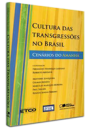
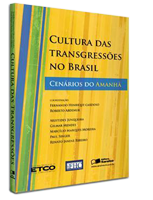
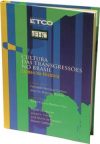
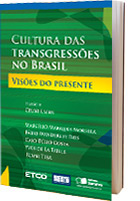 In Brazil we live a kind of paradox: at the same time that the material conditions of life improve, we have the sensation of experiencing a kind of “moral crisis”, which manifests itself from the relationships between people to the relationships between who governs and who is governed.
In Brazil we live a kind of paradox: at the same time that the material conditions of life improve, we have the sensation of experiencing a kind of “moral crisis”, which manifests itself from the relationships between people to the relationships between who governs and who is governed.
